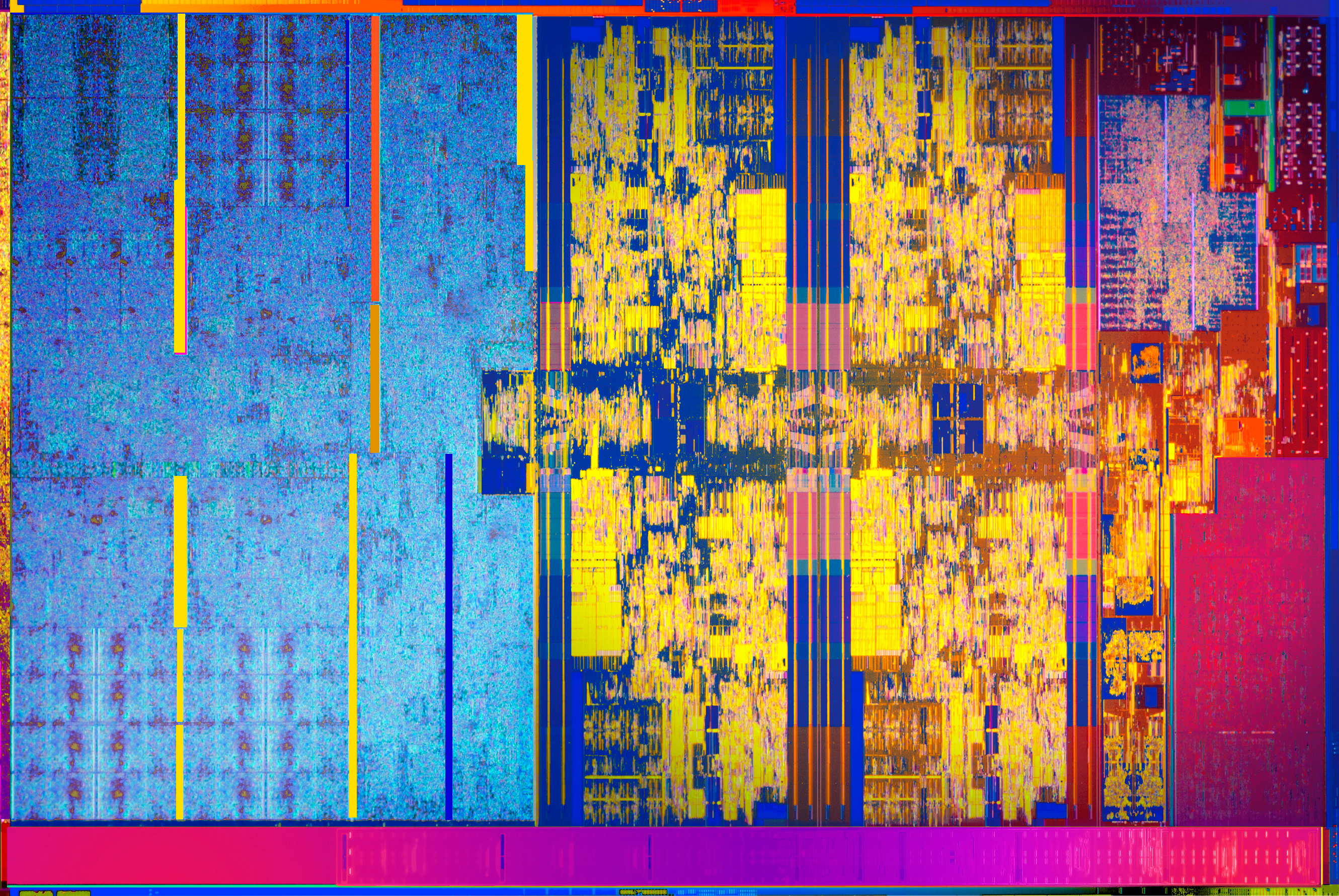 INFRA
INFRA
 INFRA
INFRA
 INFRA
INFRA
Intel Corp. is introducing what it calls the eighth generation of its Core processors today, claiming a 40 percent performance improvement over previous versions, but reviewers are saying the new chips are mainly heated-up versions of their predecessors.
Intel has achieved the gains primarily by squeezing two more cores into the same footprint and making unspecified design improvements. Initial versions are aimed primarily at laptop and “ultrabook” computers, with desktop versions due in the fall. Also on the way are processors for enterprise, workstation and high-end desktop computers.
Intel bumped up the fastest clock speed by 50 percent to 4.2 gigahertz from a previous high-end of 2.8 gigahertz. It’s calling the chips a “Kaby Lake refresh,” referring to the seventh-generation predecessor. The chips will continue to be built on what Intel calls its “14 nanometer+” and “14 nanometer++” manufacturing process, with the company planning to migrate to a 10nm process architecture dubbed Cannonlake.
This presents a rather muddy picture of the company’s migration plans, with the likelihood being that the eighth generation will end up being a combination of three different architectures, none of which are a dramatic departure from the current design. “There’s little to say about the new chips, because in a lot of ways, the new chips aren’t really new,” wrote Peter Bright in Ars Technica.
However, the performance gains are substantial, and probably necessary given growing competition from rival Advanced Micro Devices Inc., which recently posted its biggest market share gains in more than a decade on the strength of its new Ryzen desktop processors.
“The 40 percent better system performance – without impacting battery life – is the best gen-over-gen improvement Intel has achieved in a decade,” said Charles King, president of Pund-IT Inc. “That translates into PCs delivering twice the performance of desktops and laptops manufactured just five years ago.” With the combination of improvements to the core processor and design-level enhancement from original equipment manufacturer vendors, “it’s hard to understand why anyone would willingly stick with an older laptop or desktop,” King said.
Intel is stressing video performance in this release, saying the new chips feature a dedicated media engine that enables 4K video to be created nearly 15 times faster than with current technology. Video editing has been improved by 28 percent and photo optimization by nearly 50 percent. Battery life has also been upped to deliver as much as 10 hours of 4K ultra-high-definition video playback on a single charge, with instant mobile PC resume capabilities built in.
Four new models were launched today, the I5-8250U, I5-8350U, I7-8550U and I7-8650U. maximum processor frequency ranges from 3.4 gigahertz at the low end to 4.2 gigahertz at the high-end. Otherwise, specs are similar, with the exception of a larger cache and graphic dynamic frequency in the I7 editions.
Intel said it expects PC running the new processors to be available as soon as next month, with more than 145 designs already in development. The rest of the eighth generation line will roll out between now and early 2018.
THANK YOU